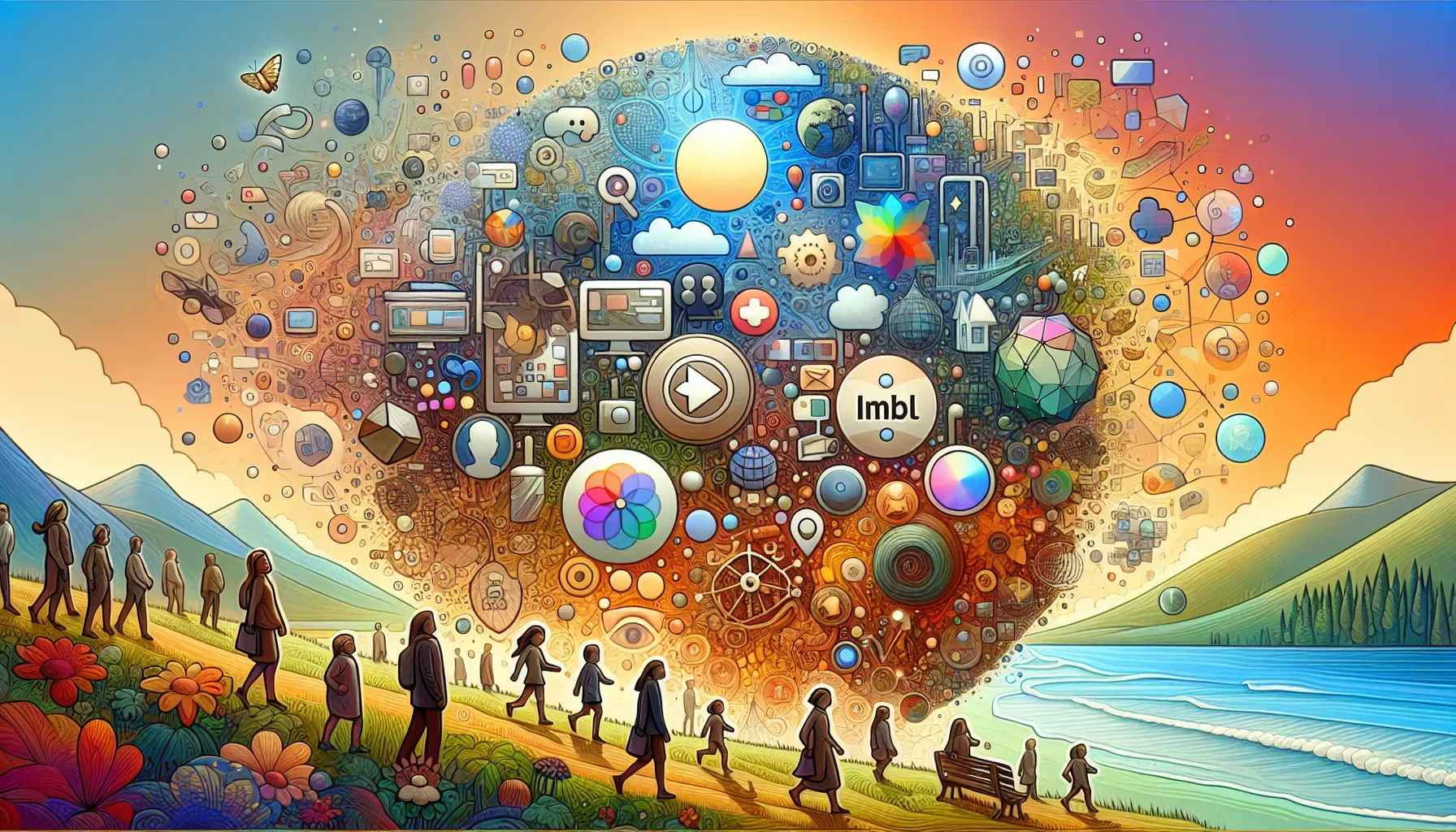Unwrapping Web 3.0: The Next Phase of Internet Evolution and Its Impact on Marketing

The digital landscape is constantly evolving, and as technology progresses, so do the ways in which businesses market their products and services. With the emergence of Web 3.0, marketers are presented with a new frontier that brings about significant changes in how they engage with their audiences. Understanding the pillars of Web 3.0 as marketing channels is essential for staying ahead in this rapidly transforming digital ecosystem.
Understanding Web 3.0: The Future of Digital Marketing
Web 3.0 introduces a paradigm shift from centralized platforms to decentralized networks, providing marketers with alternative channels to reach and engage their target audience. Unlike Web 2.0, which primarily relied on social media platforms for marketing, Web 3.0 expands the horizons by incorporating blockchain technology, decentralized applications (dApps), and non-fungible tokens (NFTs) as viable marketing channels. Leveraging these avenues enables marketers to explore innovative ways of connecting with consumers beyond traditional social media boundaries, fostering deeper levels of engagement and interaction.
Decentralized Marketing Strategies for Audience Engagement
In the era of Web 3.0, decentralized marketing strategies have gained traction as they offer a more inclusive and participatory approach to audience engagement. Marketers can leverage tokenized ecosystems to incentivize consumer participation, such as rewarding users with utility tokens for engaging with branded dApps or NFT-based loyalty programs. This shift towards decentralized marketing not only fosters a sense of community ownership but also empowers consumers to play an active role in shaping brand narratives, thereby cultivating stronger brand relationships.
Non-fungible tokens (NFTs) have disrupted the digital landscape by revolutionizing the concept of ownership and provenance in the virtual realm. For marketers and creatives, NFTs present an unprecedented opportunity to monetize digital assets while offering consumers exclusive ownership rights over unique content or collectibles. By embracing NFTs in marketing initiatives, brands can tap into the growing trend of digital ownership, creating limited edition NFTs as part of promotional campaigns or leveraging blockchain-based marketplaces to showcase branded NFT collections, thereby captivating tech-savvy audiences seeking exclusive digital experiences.
Related Article: The Future of AI in Digital Marketing: Navigating the Rise of Artificial Intelligence
NFTs: Transforming Digital Ownership in Marketing
Web 3.0 brings forth the integration of blockchain technology to enhance transparency and security within digital advertising practices. The immutable nature of blockchain ensures that advertising data remains tamper-proof, mitigating issues related to ad fraud and unauthorized data manipulation. By leveraging blockchain-based advertising solutions, marketers can instill trust among consumers by providing verifiable insights into ad placements, performance metrics, and attribution data while combatting fraudulent activities that undermine the integrity of digital advertising ecosystems.
Enhancing Transparency with Blockchain in Advertising
In a world where data privacy concerns are at the forefront of consumer consciousness, Web 3.0 introduces decentralized identity frameworks that empower individuals to have greater control over their personal information. Marketers can adapt to this paradigm shift by adopting privacy-centric approaches that prioritize consent-based data sharing and authentication models built on decentralized identity protocols. By respecting user privacy and enabling secure identity management through decentralized systems, marketers can foster trust and credibility while adhering to evolving global data protection regulations.
Related Article: Bridging The Virtual Gap: Revolutionizing Customer Interactions with AR in Digital Marketing
Decentralized Identities: Redefining Customer Data Privacy
The impending demise of third-party cookies has compelled marketers to seek alternative methodologies for audience targeting and tracking. Web 3.0 technologies offer novel solutions such as peer-to-peer networking, distributed ledger-based user identifiers, and privacy-focused analytics tools that diminish reliance on traditional tracking mechanisms while preserving user anonymity. Embracing these cookieless innovations equips marketers with sustainable strategies for gathering consumer insights without compromising privacy, thereby preparing them for a future where privacy-preserving technologies define the digital marketing landscape.
Smart contracts, powered by blockchain technology, have the potential to revolutionize affiliate and influencer marketing by automating agreement enforcement and payment processes while ensuring transparency and accountability throughout campaigns. Through self-executing contractual terms encoded within smart contracts, marketers can streamline partnership agreements, track performance metrics, and automate commission payouts based on predefined conditions. This not only reduces administrative overhead but also nurtures trust between brands, affiliates, and influencers by providing verifiable transactional elements within an immutable distributed ledger.
Frequently Asked Questions
Web 3.0 shifts from centralized platforms to decentralized networks, introducing blockchain technology, decentralized applications (dApps), and non-fungible tokens (NFTs) as key marketing channels. These innovations enable marketers to engage audiences in novel ways, moving beyond traditional social media and fostering deeper consumer interactions.
Decentralized marketing strategies promote inclusivity by allowing consumers to participate actively in brand narratives. Marketers can use tokenized ecosystems to reward user engagement with utility tokens or NFT-based loyalty programs, creating a sense of community ownership and strengthening brand relationships.
Smart contracts automate agreement enforcement and payment processes in affiliate and influencer marketing. By encoding contractual terms on the blockchain, they streamline partnerships, track performance metrics, and ensure transparent commission payouts, reducing administrative overhead while building trust among brands and influencers.
Check Out These Related Articles

Real-Time Personalization: AI's Role in Shaping User Experiences

Autonomous Algorithms: Programming the Future of Automated Marketing

Augmenting Reality in E-commerce: Shopping in the Fourth Dimension

